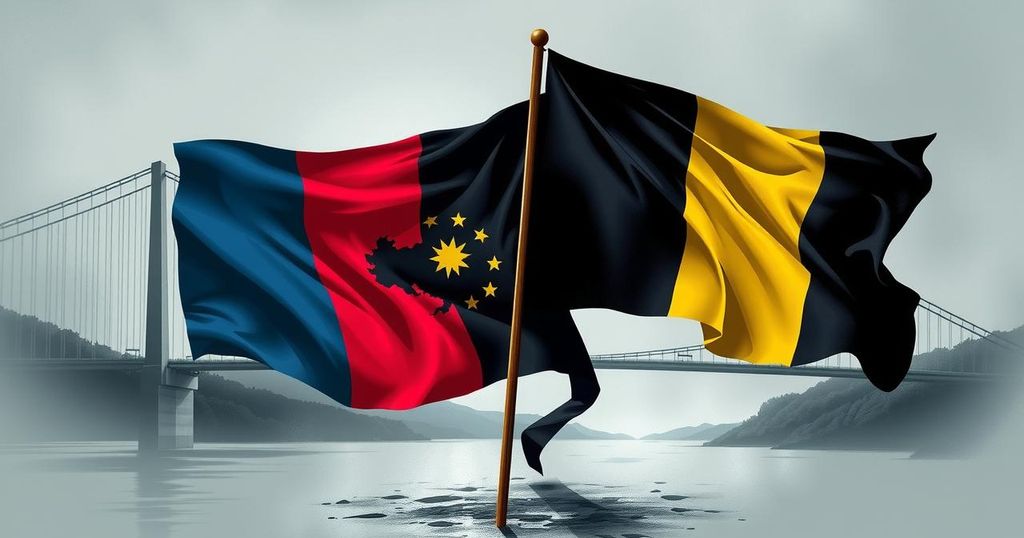Rwanda’s Diplomatic Rift with Belgium: An Historical Overview of Tensions

Rwanda has cut diplomatic ties with Belgium, accusing it of siding with the DRC and mobilizing sanctions against Kigali. Historical grievances date back to Belgian colonial rule, which fostered ethnic divisions and violence. Despite past apologies, Rwanda claims Belgium continues to finance genocide denial and maintains hostility towards its government amid the recommendations of international resolutions.
The Rwandan government has severed diplomatic ties with Belgium, accusing it of siding with the Democratic Republic of the Congo (DRC) amidst ongoing conflicts. Rwanda claims Belgium is also advocating for international sanctions against its government. The historical grievances date back to Belgium’s colonial rule, which has fostered long-standing tensions between the two nations.
Rwanda attributes its issues with Belgium to historical events starting with German and Belgian colonization. Following the Berlin Conference in the late 19th century, Rwanda’s borders were reduced, annexing territories to Belgian Congo and Uganda, setting a divisive precedent among Rwandans.
Between 1924 and 1946, the League of Nations and the United Nations placed Belgium in a trusteeship over Rwanda, mandating it to promote social unity and respect human rights. However, Rwanda claims Belgium established a divisive political framework, contradicting these principles.
Belgium gained control of Rwanda militarily in 1916 and enforced significant reforms, including labor laws and the introduction of ethnic identity cards. This effectively categorized Rwandans and instigated division, culminating in violence against the Tutsi, with the Belgian military reportedly playing a substantial role.
Independence was granted in July 1962 following years of ethnic massacres, which continued post-independence with an organized genocide against Tutsi in December 1963. Various publications characterized these events as genocide, while Belgium acknowledged the unfolding tragedy but remained complicit by supporting the Hutu-dominated regime.
Amidst these tensions, Belgium’s involvement peaked in 1990 during the Rwandan Civil War when it sent military support, exacerbating ethnic conflicts. Post-genocide, Belgium’s role during the massacres faced scrutiny, prompting a public apology from Prime Minister Guy Verhofstadt in 2000, yet suspicions lingered.
The United Nations Security Council adopted Resolution 2150 in 2014 to educate future generations against genocide denial. Nonetheless, Rwanda accuses Belgium of financing denialist movements and failing to abide by this resolution, asserting Belgium maintains a hostile attitude towards Kigali, favoring narratives from the DRC government and ignoring threats from the FDLR, a terrorist organization in the region.
The tensions between Rwanda and Belgium are deeply rooted in historical grievances, manipulation under colonial rule, and allegations of complicity in genocide. The recent severance of diplomatic relations emphasizes the ongoing disputes and highlights Rwanda’s calls for accountability regarding Belgium’s historical and contemporary actions.
In conclusion, Rwanda’s severance of diplomatic relations with Belgium underscores a complex history marked by colonial injustices, ethnic violence, and alleged complicity in genocide. Historical grievances from Belgium’s colonial rule, its role in exacerbating ethnic divisions, and contemporary actions that Rwanda deems hostile contribute to ongoing tensions. As Rwanda seeks accountability and recognition of past atrocities, the need for genuine reconciliation and understanding remains critical to moving forward.
Original Source: www.ktpress.rw







